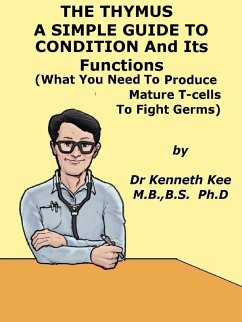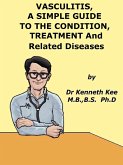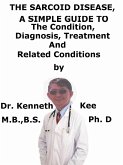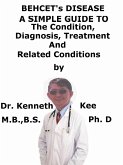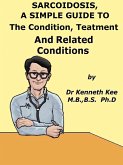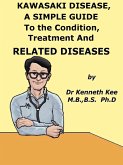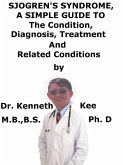The function of the thymus is the production and education of T cells which are critical cells of the adaptive immune system and play a central role in cell-mediated immunity:
The thymus is largest and most active during the neonatal and pre-adolescent periods.
By the early teens, the thymus begins to atrophy and thymic stroma is replaced by adipose (fat) tissue.
SIZE:
1. Birth about 15grams;
2. Puberty about 35grams,
3. Twenty-five years 25grams,
4. Sixty years less than 15grams,
5. Seventy years as low as 5grams
The Thymus Gland is a small gland in the upper chest.
It weighs 1/3 - 1/2 half ounce at birth, and reaches its peak weight of about 17 ounces at puberty.
After puberty under the influence of adrenal and sex hormones, the active thymus gland cells begin to die off with much of the thymus gland tissue being gradually replaced by fat and connective tissue.
Much of the healthy thymus gland structure typically atrophies by age 20, and the decline accelerates throughout life thereafter.
Science has discovered that the thymus gland is the key regulator of immunity.
Collectively, thymus gland hormones have been shown in humans to have a broad range of action, well beyond merely maturing and differentiating T cells.
These hormones can prevent the tissue wasting that occurs with thymus gland removal or severe thymus gland atrophy and promote healthy weight gain in disease states- such as AIDS - where catabolic body wasting is typical.
The thymus gland hormones can reduce autoimmune reactions such as occur in rheumatoid arthritis.
Thymus gland hormones also prevent the bone marrow injury and subsequent reduction in white and red blood cell production frequently produced by X-ray or chemotherapy cancer treatment.
Since thymus gland hormones are secreted by the very thymus gland cells that shrivel up and waste away due to aging, stress, disease, radiation and malnutrition, etc., the drop in thymus gland hormone activity with aging should hardly be surprising.
To most anti-aging medicine devotees, there is a large body of published human clinical research supporting the use of oral thymus gland extracts.
They have been used in a broad range of conditions, ranging from cancer treatment, to rheumatoid arthritis to various allergy and asthma conditions, to recurrent respiratory infections and hepatitis.
These studies have generally shown thymus gland extracts to be extremely non-toxic and side effect free with few contraindications for use.
The main block to the acceptance of the efficacy of oral thymus gland extracts is the erroneous yet widespread belief that all proteins and peptides taken orally, as food or supplements, are 100% digested to individual amino acids before absorption from the intestine into the body.
The thymus gland creates the T-4 helper white blood cells that perform their specialized job in the human body of locating invaders such as viruses, bacteria, or abnormal cells.
The thymus gland also sends out the T-8 killer white blood cells to find invaders and destroy them.
Importance of the Thymus in Immunity
The thymus is essential to the maturation of the immune system.
It contributes to the development of T lymphocytes, guard cells that participate in the immunoreactions.
Unfortunately, the thymus atrophies with age, and the production of defense cells gradually decline, making human beings more vulnerable to various diseases.
TABLE OF CONTENT
Introduction
Chapter 1 The Thymus
Chapter 2 Thymus Functions
Chapter 3 Prevention of Thymus Disorders
Chapter 4 Lymphatic System
Chapter 5 Thymus and Diseases
Dieser Download kann aus rechtlichen Gründen nur mit Rechnungsadresse in A, B, CY, CZ, D, DK, EW, E, FIN, F, GR, H, IRL, I, LT, L, LR, M, NL, PL, P, R, S, SLO, SK ausgeliefert werden.

